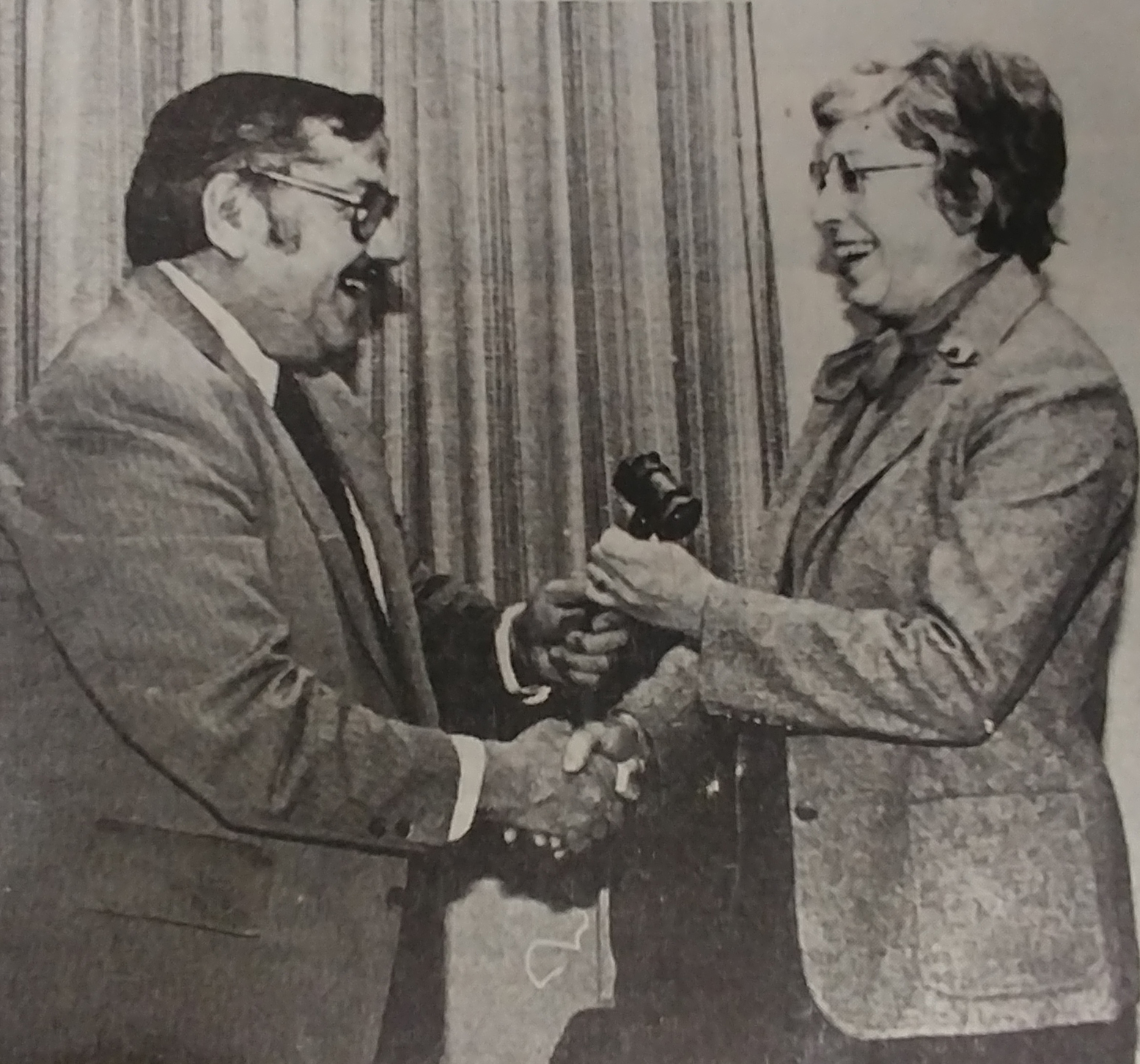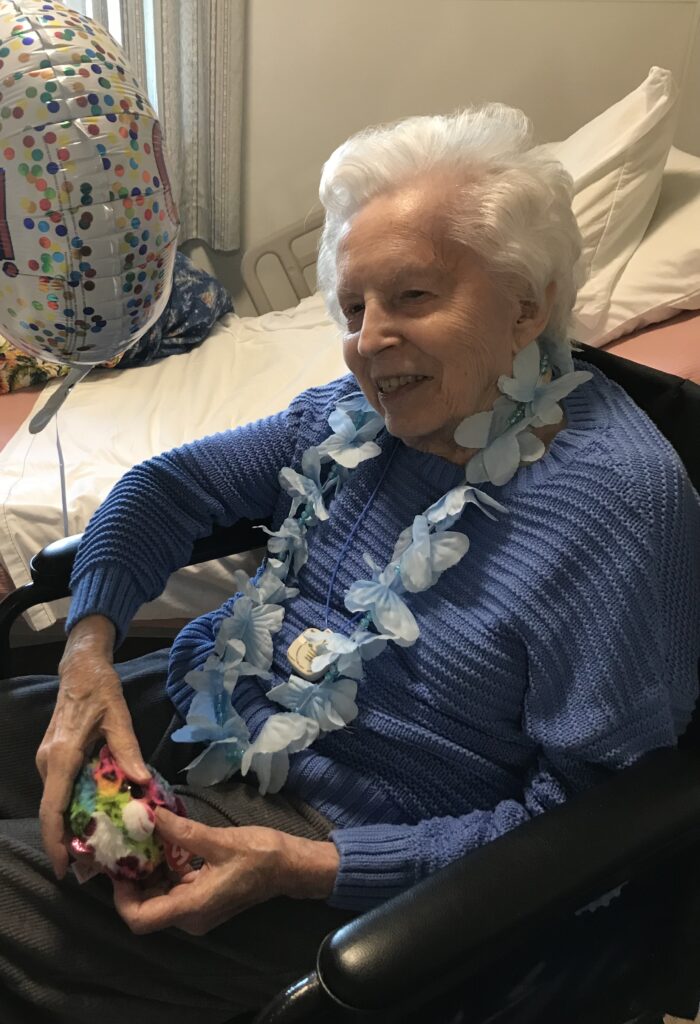
CARIBOU, Maine — Long before her daughter Susan was elected to the United States Senate, Patricia “Pat” Collins was making history in Caribou and inspiring new generations of local women leaders.
Pat Collins died Tuesday at age 96. Though she is most known as the mother of U.S. Sen. Susan Collins, Pat Collins had a widespread and respected reputation as a civic leader.
She helped lead the Caribou City Council and various other boards and committees, all while raising six children and supporting her husband, the late Donald Collins, who ran the family business, S.W. Collins Company. Don Collins also served five terms in the Maine House and Senate from 1970 to 1992.
In January 1981, Pat Collins became the second woman to serve as Caribou’s city mayor but the first that the Caribou City Council elected for that role. She followed council member Elizabeth Hamilton, who stepped up as mayor in 1977 to fill the remaining term of a councilor who had resigned. Collins was first elected in 1978.
Sadly, many people who served with Collins have since died, said Joan Theriault, a current Caribou city councilor.
But Theriault’s father, the late Herbert Aldrich, always said he had the privilege of getting defeated by Collins during his 1978 run for council, the only time between 1960 and that year he had ever lost his seat. He was reelected in 1979 and served until 1982.
After Theriault was first elected to the city council 11 years ago, she had many lively but productive conversations with Collins and came to appreciate her honesty and advice.
“She would call me and discuss certain issues that the council was dealing with and if we disagreed, I would tell her to convince me to change my mind,” Theriault said. “She usually did.”

That’s who Collins was, said lifelong family friend and Caribou dentist Bruce Freme: A leader who knew where she stood and always held her ground.
Collins also knew that, as a woman, she deserved an equal chance to voice her opinions on local issues, Freme said.
As the 1960s became the 1970s and more women sought roles in local, state and national politics, Collins quickly became a local icon. She served on the Caribou Board of Education from 1967 to 1974, becoming chairperson during her final year.
She advocated for what was then a new Caribou High School, built in the 1960s on Sweden Street, where it stands today, and the Caribou Performing Arts Center, constructed inside the high school in 1988.
Collins stepped down from the city council in 1983 to pursue an art degree from the University of Maine at Presque Isle, but still served on the state’s Committee on Judicial Responsibility and Disability, which dealt with complaints against members of the Maine judiciary.
In 1987 she earned her degree and rejoined the council for the Holy Rosary Church in Caribou, after having stepped down before her stint at UMPI. She served as chairperson during her time on the judiciary committee and Holy Rosary council.
Collins’ community service led to her being named the County Woman of the Year in 1994. She was inducted into the Maine Women’s Hall of Fame in 2005, an honor also bestowed on her daughter Susan, Margaret Chase Smith, Gov. Janet Mills and NASA astronaut and Caribou native Jessica Meir.
Collins was a “civic-minded” person and passed down her love of community to her children. But most of all, she knew how to stand by tough choices, Freme said.
“Whether you agreed or not, you knew it was a well-thought and researched decision,” Freme said. “I think that was her greatest strength and what I respected most about her.”
Though Collins slowed down in civic life as she got older, she kept many friends in the community and made new ones along the way.
Donna Hurley, who moved to Caribou in 1960 to teach home economics at Caribou High School, was one of Collins’ neighbors. The women chatted often but did not become close friends until more recently, when Collins began having vision problems and chose to stop driving.
After Collins entered nursing home care due to health issues, Hurley visited her every Sunday to listen to church services online, enjoy ice cream cones and laugh at the jokes in “Reader’s Digest.”
Hurley knew about Collins’ reputation in the community, but mostly thought of her as a great friend who cared about everyone like they were family.
“Pat and I would go to exercise classes with our friend Rose and she found out that she and Rose were only children,” Hurley said. “So Pat suggested that they call themselves sisters from another mother. Then my sister and I called her that also.”







